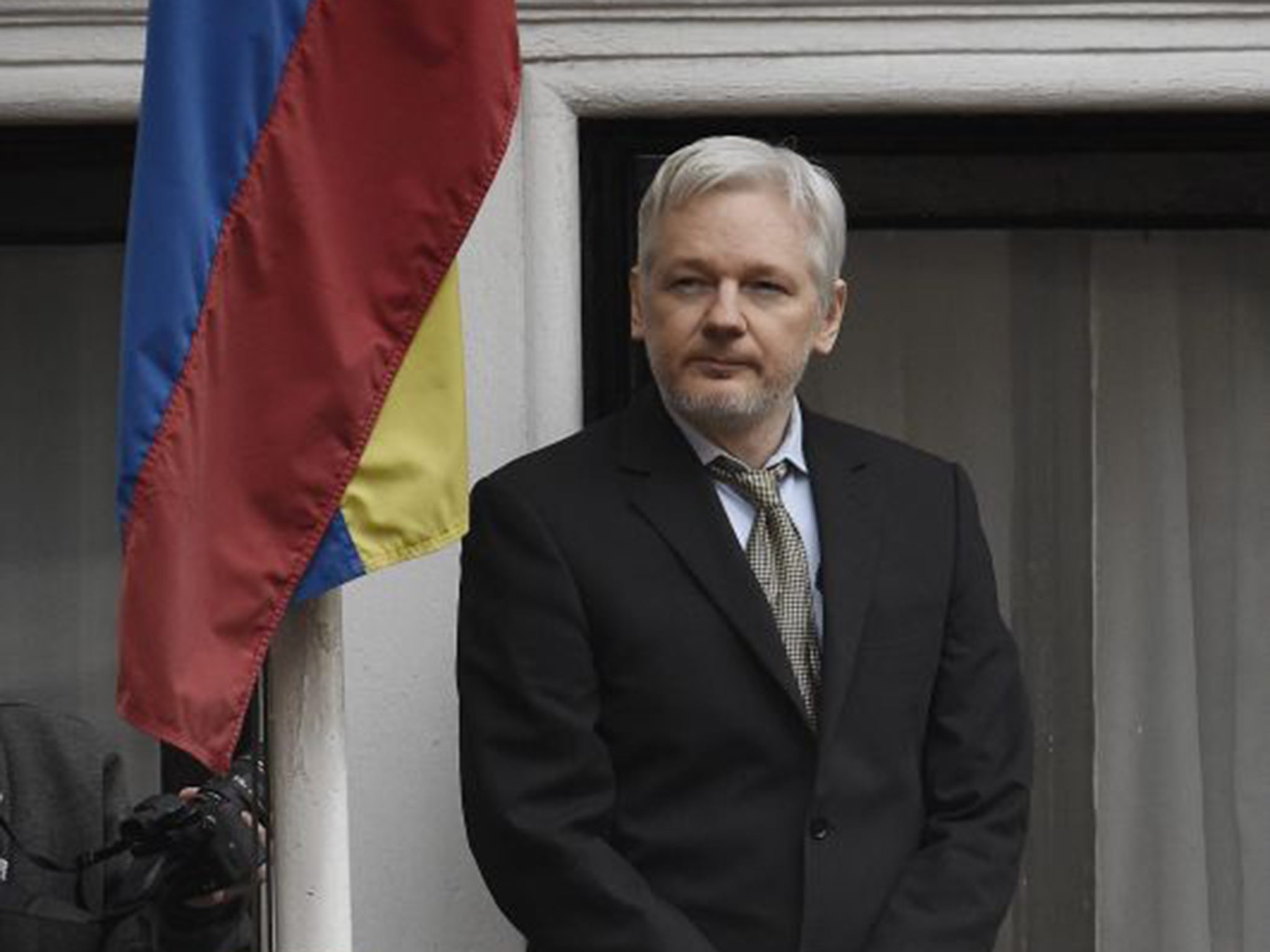Julian Assange: Swedish court upholds arrest warrant for WikiLeaks founder after 'arbitrary detention' finding
The Stockholm district court said there was 'probably suspicion' against Mr Assange

Your support helps us to tell the story
From reproductive rights to climate change to Big Tech, The Independent is on the ground when the story is developing. Whether it's investigating the financials of Elon Musk's pro-Trump PAC or producing our latest documentary, 'The A Word', which shines a light on the American women fighting for reproductive rights, we know how important it is to parse out the facts from the messaging.
At such a critical moment in US history, we need reporters on the ground. Your donation allows us to keep sending journalists to speak to both sides of the story.
The Independent is trusted by Americans across the entire political spectrum. And unlike many other quality news outlets, we choose not to lock Americans out of our reporting and analysis with paywalls. We believe quality journalism should be available to everyone, paid for by those who can afford it.
Your support makes all the difference.A Swedish court has upheld an arrest warrant for Julian Assange in the wake of a United Nations panel's finding that the WikiLeaks founder was being subjected to "arbitrary detention".
The 44-year-old is wanted by Swedish authorities for questioning over rape allegations dating back to 2010, which he denies.
Mr Assange has been holed up at the Ecuadorian Embassy in London since 2012 in an arrangement condemned by the UN Working Group on Arbitrary Detention (WGAD) in February.
But judges at Stockholm District Court said it does not consider his stay as a form of detention and has asked for aid from embassy officials to carry out questioning.
“The district court finds that there is still probable cause for the suspicion against Julian Assange for rape, less serious incident, and that there is still a risk that he will depart or in some other way evade prosecution or penalty,” a statement on Wednesday’s ruling said.
“The district court finds that the interest of enabling investigation of the crime Julian Assange is suspected of by way of questioning him outweighs the intrusion or harm the detention order causes Julian Assange. There are therefore grounds for Julian Assange to remain detained in absentia.”
Following the UN ruling, Mr Assange's lawyers had asked the Stockholm District Court to overturn the warrant for his arrest.
One of his representatives, Thomas Olsson, said the decision may be be appealed.
“As far as I understand it, the court has not addressed the main issue in the case, whether the delay in the investigation is due to the inaction of the prosecutor, which we mean is a reason to overturn this (arrest warrant),” he told Reuters.
Swedish prosecutors want to question the Australian over allegations of rape stemming from a working visit he made to the country in 2010, when revelations made by WikiLeaks on the Iraq and Afghanistan wars were reverberating around the world.
Mr Assange refused to return to Sweden, saying he fears extradition to the United States, where there has been a criminal investigation into the activities of WikiLeaks.
In 2010, the website released more than 90,000 secret documents on the US-led military campaign in Afghanistan, followed by almost 400,000 American military reports detailing operations in Iraq.
Those disclosures were followed by release of millions of diplomatic cables dating back to 1973.
Sweden and the UK have made no move to follow the WGAD’s call to immediately end Mr Assange’s “deprivation of liberty'' and compensate him.
The UK Government was formally contesting the findings and denied that his “voluntary” stay at the Ecuadorian Embassy constituted arbitrary detention, while Sweden's Prosecution Authority said there was “no impact” on its continuing investigation.
Join our commenting forum
Join thought-provoking conversations, follow other Independent readers and see their replies
Comments